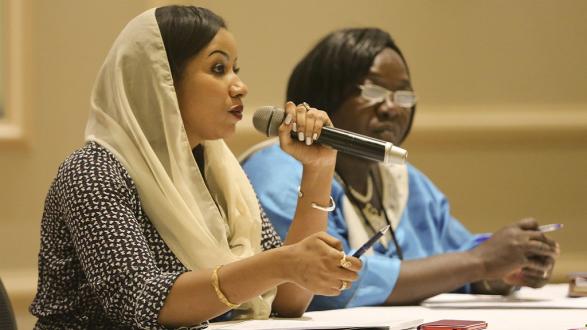There is a lack of women’s leadership in this country.
In companies, Congress, Hollywood, tech, and certainly in our field of national security, relatively few women have made it to the top. Just as President Obama couldn't erase racial bias, recent women Secretaries of State haven’t nearly evened the odds for women leaders. Just watch the Sunday talk shows and prime-time cable news panels, which showcase the utter domination of men in foreign affairs and policy more broadly. But it is also true in media, on the Hill, at the State, Defense, and Homeland Security departments, as well as in the intelligence community, military, and with contractors. Women occupy 30 percent of top leadership positions, at best. The Trump administration is moving backward on this issue, if anywhere. The situation is demoralizing for senior women as well as the next generation.
Yet research shows that more diverse leadership groups are more creative, innovative, and more likely to avoid "groupthink." Corporations with more women managers and board members are measurably more profitable. Female members of Congress are judged to be as or more effective than their male colleagues. And if there were no barriers, eventually the people with the most potential for excellence would rise, regardless of their gender or race. So while the lack of women—especially women of color—in top decision-making spots is a problem of fairness, it is also about making our institutions as successful as they can be.
Women talk to other women about the barriers to their achievement, internal and external, a great deal. But it’s men who can make the biggest difference. We need a cultural shift, and men need to show the way. Women want to lead, contribute, excel. Please help us do it.
Read the full article on TIME.
_______________________
Nina Hachigian is a Pacific Council member and served as the U.S. Ambassador to the Association of Southeast Asian Nations (ASEAN) from 2014 to 2017. Los Angeles Mayor Eric Garcetti recently named her Deputy Mayor for International Affairs.
Julianne Smith is the director of the Transatlantic Security Program at the Center for a New American Security and previously served as deputy national security advisor to Vice President Joseph Biden.
The views and opinions expressed here are those of the authors and do not necessarily reflect the official policy or position of the Pacific Council.




